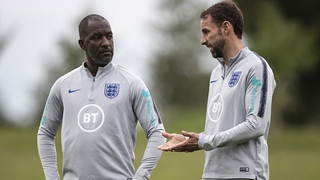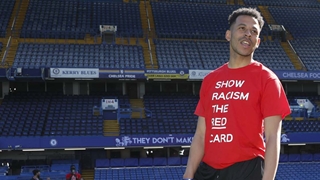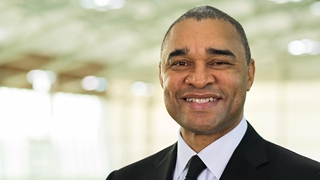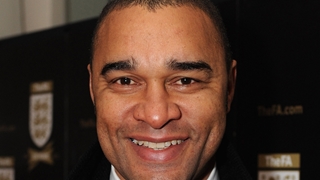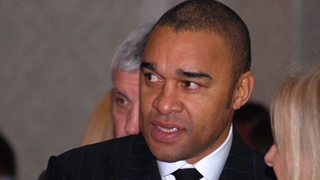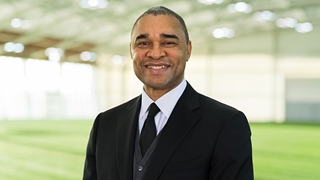
We recently announced the appointment of seven new members to our FA Inclusion Advisory Board [IAB] and today, we held our first meeting to induct the new members into our group.
When I became Chair of the IAB in 2017, my aspiration was to build on the solid foundations laid by my predecessor Dame Heather Rabbatts CBE, and her leadership and contribution to the regulatory frameworks for combatting discrimination in football. Without her impact, mandatory education would not feature as a sanction within the regulatory structure we currently have today.
We've built on this with our diversity and inclusion plan, In Pursuit of Progress, which sets out the FA’s wide-ranging ambition with clear and measurable targets on gender and BAME representation in coaching, leadership, FA workforce and across our grassroots game.
I’m proud that the FA is prioritising this and leading change by being proactive, by demonstrating strong leadership and responding to the 21st-century challenges we all face together – from the touchline to the boardroom. However, we all recognise that there is more to be done.
The ongoing work was captured perfectly in upholding our zero-tolerance stance towards racism during the Bulgaria v England game in October 2019, when our black players were the victims of such reprehensible abuse. The leadership of our chairman, chief executive, Gareth Southgate, the players and FA staff sent a powerful message to the global game. We remain wholly committed to stamping discrimination out of the game, both on and off the field of play, while recognising the challenges we need to address in football within our own country.
One progression that I’m particularly proud of is the Elite Coaching Placement Programme, which we developed in 2016 and quickly got the backing of senior executives across the FA, including the chairman, chief executive and technical directors. It sees coaches from under-represented groups embedded within the national development and senior teams and it's a way for the FA to build relationships with talented BAME coaches and support their development journey.
The significance of this programme was captured on that challenging evening in Bulgaria, where Chris Powell sat alongside Gareth on the bench. Such visibility was hugely impactful for our aspiring coaches and especially comforting for the players. The positives out of the extreme adversity was that the players were connected to a role model such as Chris to lean on for support given his experience and stature in football.
An important area of our plan which we must continue to address head on is the lack of Asian representation in football. While there is a healthy pipeline of Asian talent coming through both on and off the pitch, there is still understanding that there is great under-representation of Asian communities within football, particularly at an elite level.
This is why we launched our Asian Inclusion Strategy in 2019, which features five pillars of work designed to create a step change in Asian representation across football. It aims to encourage more players, coaches, referees and staff from an Asian background to make football their chosen career path, changing perceptions in the process. We must do more to ensure we have a joint approach to this issue so talent comes through and this remains a key focus of the IAB moving forwards.
We also continue to use our reach to shine a light on other important topics which need debating. Alongside the Duke of Cambridge, the FA and mental health charity Heads Together have got football and wider society talking through the excellent Heads Up campaign, raising awareness of the importance of our mental health and ensuring it is spoken about and treated as seriously as physical health.
I retired from professional football in the mid-1990s, following several operations on my knees, and I admit that the trauma I experienced was mental as well as physical. In my generation, you were deemed weak and were dismissed if you spoke out on such issues, so it's heartening to see this narrative changing, with players such as Marvin Sordell, Jordan Nobbs and Karen Carney to name a few who have spoken out, sharing their struggles to break down stigma and providing hope and encouragement to others who may be struggling with their mental health.
Our efforts in making the modern game reflective of our diverse society must also include sexuality and our challenging of what were previously referred to as ‘gender roles’.
Our work across LGBT+ inclusion with our partners was captured beautifully in the match we hosted at Wembley Stadium between Stonewall FC and Wilberforce Wanderers in 2018. With over 1000 people in attendance at our national stadium, it was a groundbreaking moment and testimony to our commitment to creating a more inclusive environment for LGBT+ people and allies in football.
I take comfort in the fact that we continue to raise awareness through supporting successful campaigns such as the Rainbow Laces campaign, which has grown in support across all corners of football, as well as our continued participation in the annual Pride in London parade.
Collectively, The IAB and the FA have achieved a lot making the game more diverse and inclusive in recent years, and these are just a few of the highlights. But the focus remains on the future, doing more and ensuring we continue to challenge prejudices and open up further opportunities for everybody, regardless of their race, religion, sexuality, gender, background or anything else.
That remains the overarching commitment of myself and the other IAB members and it's something we are all very proud to be tasked with – proving that football can be a force for good at every level of the game.
I look forward to working with our new members and will continue to provide regular updates on the IAB’s progress as we aim to make the game we all love truly for all.


